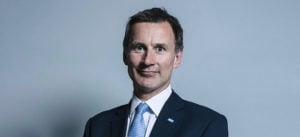Stamp Duty Cut Survives Mini-Budget Overhaul

New Chancellor Jeremy Hunt has today (17th October) announced an overhaul of last month’s Mini-Budget, and permanent cuts to stamp duty is one of the few measures to survive.
The former Foreign Secretary was expected to reverse at least some policies introduced under predecessor Kwasi Kwarteng’s disastrous fiscal event, which caused the pound to plummet and the economic outlook to deteriorate.
In addition to the stamp duty cut, the reduction to national insurance payments is the only other of Kwarteng’s announcements to remain following the government U-turn. Income tax changes and the abolition of the IR35 rule changes were among the measures thrown out.
Moreover, the Energy Price Guarantee has been amended and will now end next April, having originally been slated to last for two years. Hunt has pledged to review this policy when it expires and assess the most viable way to tackle the energy crisis going forward.
Kwarteng left his post last week after the fallout from the Mini-Budget saw the government come under fire. This made him the second shortest-serving Chancellor in UK history.
The stamp duty measures that will remain in place will see the first £250,000 of a property purchase being exempt from the tax, up from the previous threshold of £125,000. First-time buyers will pay no tax on the first £425,000, up from £300,000 before.
Commenting on the government’s U-turn, Pete Mugleston, Online Mortgage Advisor’s managing director, said: “It’s good news that the stamp duty measures won’t be axed along with the other policies the government has chosen to shelve. We believe the cuts will help more first-time buyers onto the market at a time when getting a mortgage might prove more difficult for them.
“We are confident that the mortgage market will settle down and become more accessible for home buyers and home movers, although we must stress that the brokers we work with are still capable of finding competitive deals for customers, even though rates on the whole have risen. The government’s decision to reverse most of the Mini-Budget should help with this.”
It remains to be seen what impact the reversal of the Mini-Budget will have on interest rates ahead of the Bank of England’s next Monetary Policy Committee meeting on 3rd November, but the bank has previously hinted that a further increase to the base rate is likely.
